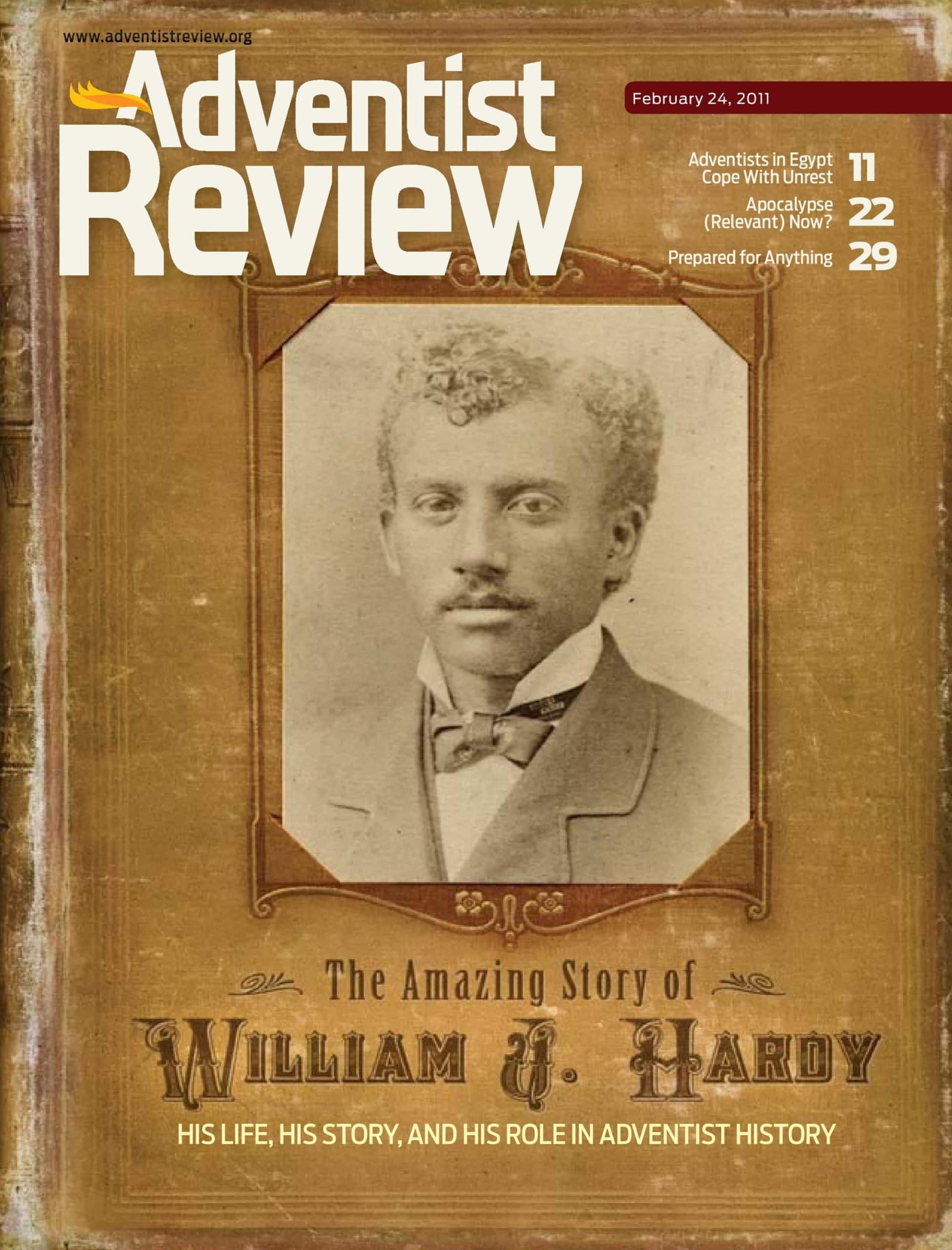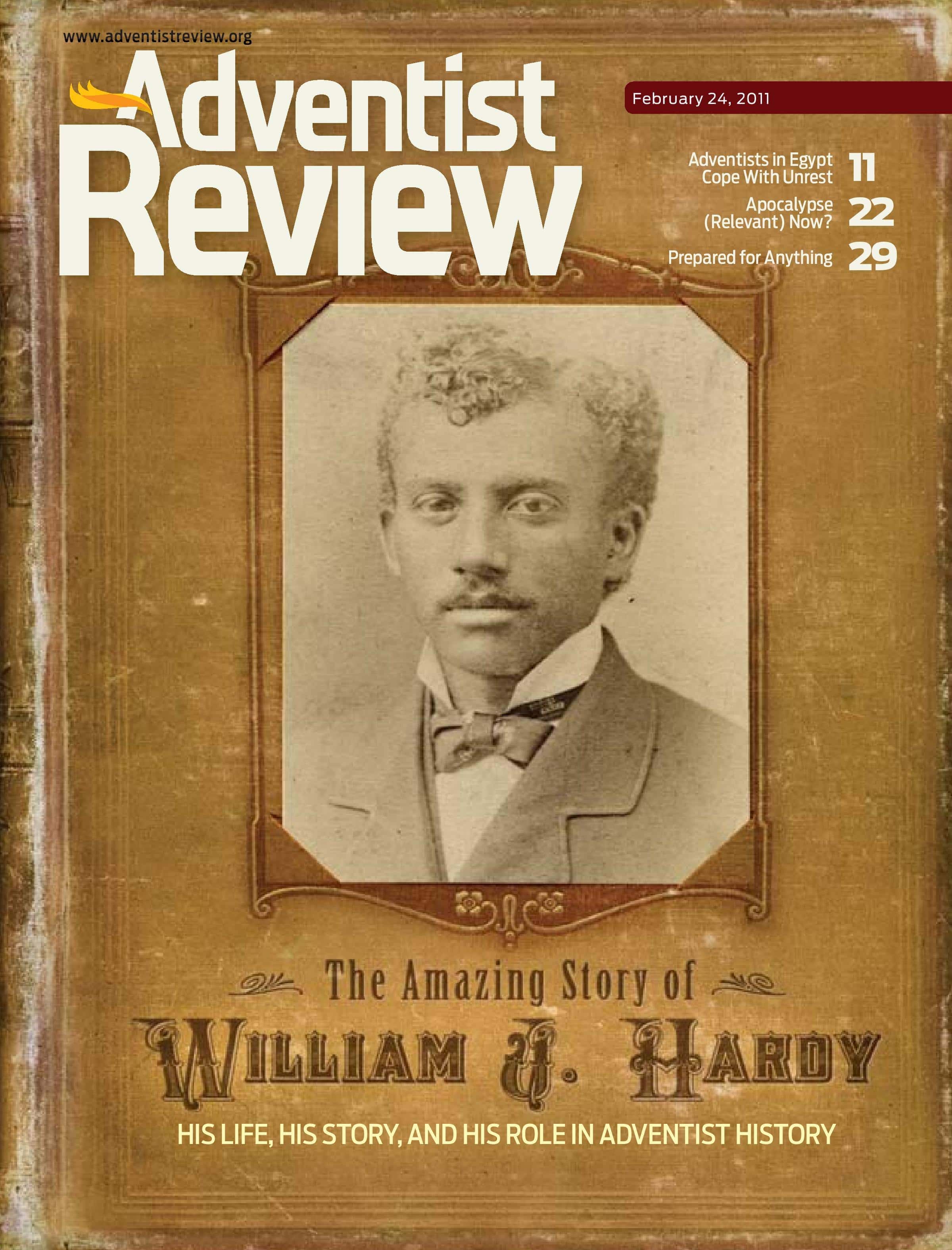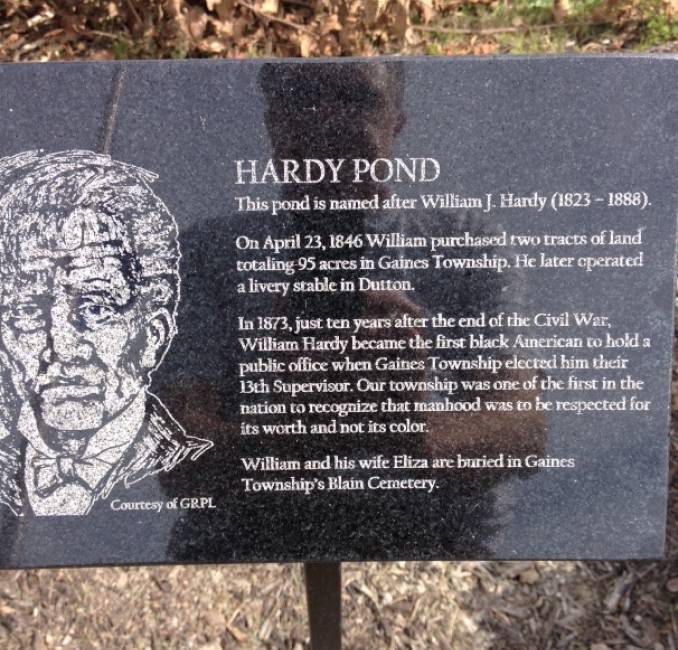
, MLive
A township in the U.S. state of Michigan is planning a ceremony to honor a long-ago resident who earned pages in the history books for two different reasons.
On Oct. 10, the township will dedicate Hardy Pond, located at the Gaines Township Hall/Prairie Wolf Park site, in honor of its 13th township supervisor, William J. Hardy.
When he was elected to the post in 1872, Hardy became the first African-American elected to a public office in Michigan.

Hardy’s other claim to fame is that he and his wife, Eliza, were the first African-Americans to join the Seventh-day Adventist church, according to a church history online at blacksdahistory.org.
A third family “first”belongs to the couple’s son, Eugene. Information on file in the local history collection at the Grand Rapids Public Library indicates he was the first African-American student in Michigan to graduate from high school.
The ceremony will take place at 11 a.m. at Prairie Wolf Park, 8555 Kalamazoo Ave. SE, as part of the township's annual Fall Heritage Festival. A granite monument dedicated to Hardy is also in the plans, according to Township Treasurer Laurie Lemke.
In conjunction with the ceremony, the Gaines Township Library will be hosting genealogy classes at the park at 11:30 a.m. and 2 p.m. to help residents learn about researching their ancestry.
“We thought that would be a nice follow-up to the pond dedication,” said Township treasurer Laurie Lemke.
Hardy was born in 1823, and came with his family to Michigan from New York in 1827, according to documents compiled by the Grand Rapids Historical Commission and the Seventh-day Adventist Church.
When he was 23 years old, he purchased 93 acres (38 hectares) in Gaines Township at the corner of Hanna Lake Road and 68th Street, now the site of Chemical Bank, said Linda Crumback, who has been researching the family for the Gaines Township Historical Commission.
He later sold that farm and moved to another in the area of 68th Street and Kalamazoo Avenue, she said.
In the late 1850s, Hardy and his wife, Eliza, joined a new Seventh-day Adventist Church that had formed in Caledonia. The congregation, which was otherwise white, soon included the William Minisee family of Byron Township, another prominent African-American family of the time.
The church later relocated to Gaines, where most of the members lived.
Read Adventist Review’s 2011 report: “Adventism’s First Black Family”
An 1878 article in the church’s Review and Herald publication recognized Hardy’s importance to the church, saying, “the burden of the work here [Gaines church] now rests almost wholly on Bro. W. J. Hardy. He has the confidence of the people.”
Hardy held a variety of leadership positions in the church, including clerk and elder. He might have also been the church's treasurer, according to the church history.
Hardy got into local politics as soon as the 15th Amendment to the U.S. Constitution passed in 1870. He was elected supervisor in 1872 as a Republican in what was then a Democratic stronghold, according to the church history.
William and Eliza’s oldest son, Eugene, graduated from high school in Grand Rapids in 1877 and became a music teacher. The couple had five other children: Alice, Asher, Lloyd, William H. and Mary Ellen. Hardy doesn’t have any descendants living in the Gaines area now, but has descendants living in other states, Lemke said.
After suffering a stroke, Hardy sold his farm and moved to a smaller one near Dutton, where he operated a livery stable. The Gaines church disbanded in 1885, after he was no longer leading it.
Following his death in 1888, the Grand Rapids Eagle newspaper called Hardy “a man of honor, honesty and integrity,” and said he was “appreciated by the community in which he lived.” The article stated 400 people came to his funeral.
William and Eliza Hardy are buried in Gaines Township’s Blain Cemetery. Visitors to the Historic Adventist Village in Battle Creek will find a display dedicated to Hardy and his family.
This report is republished with the permission of the author.